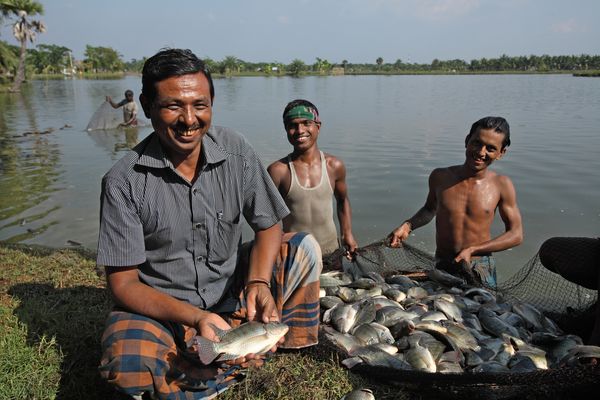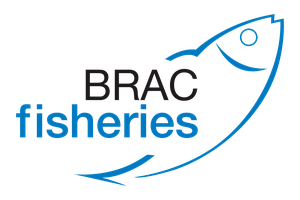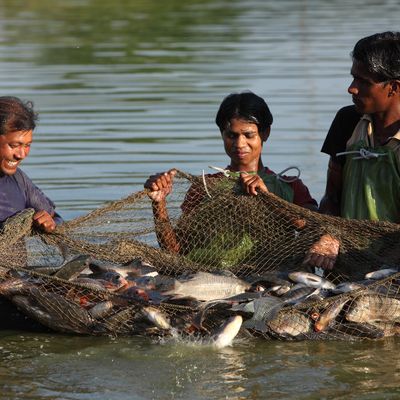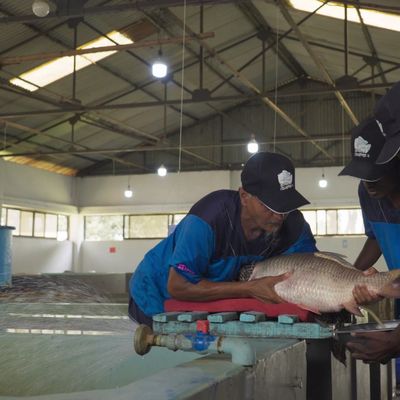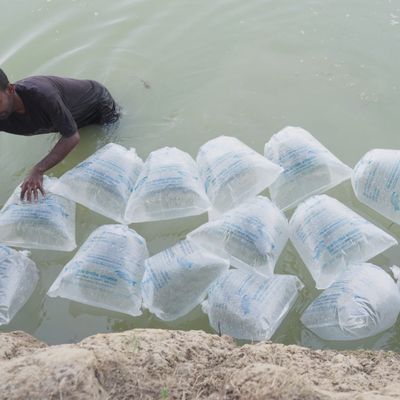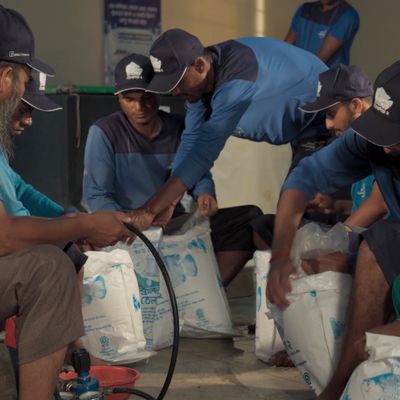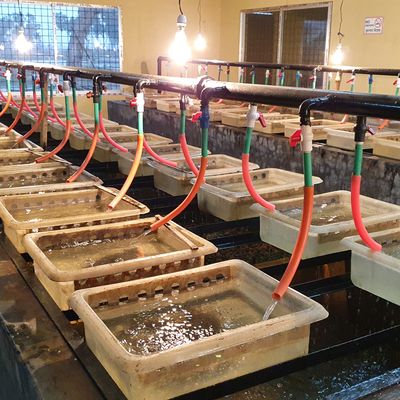BRAC has been supporting people in rural Bangladesh to generate income through aquaculture for almost half a century.
Bangladesh is now the world’s second-largest producer of freshwater fish, and BRAC Fisheries is Bangladesh’s largest fisheries enterprise, supplying thousands of farmers with high quality fish spawn, fingerlings, and providing expert guidance on hatchery management and fish care.
Scaling innovation through hatcheries
Our work started in 1976, as part of BRAC’s post-war rehabilitation efforts, to create livelihoods for women in rural areas. We trained women to utilize the ponds around their homes for aquaculture, so they had a reliable protein source and could sell the surplus.
As demand for fish fingerlings grew, we trained people to establish household hatcheries. It quickly became clear that ensuring a consistent supply of high quality fish spawn and fingerlings was the biggest challenge farmers faced. This led to the establishment of our own fish and prawn hatchery network.
While we initially focused on freshwater species, we are now expanding our footprint to coastal areas. We have recently set up a new hatchery in Cox’s Bazar as part of our Vannamei shrimp project. Today, we operate ten hatcheries, supplying farmers nationwide with fish and shrimp spawn.
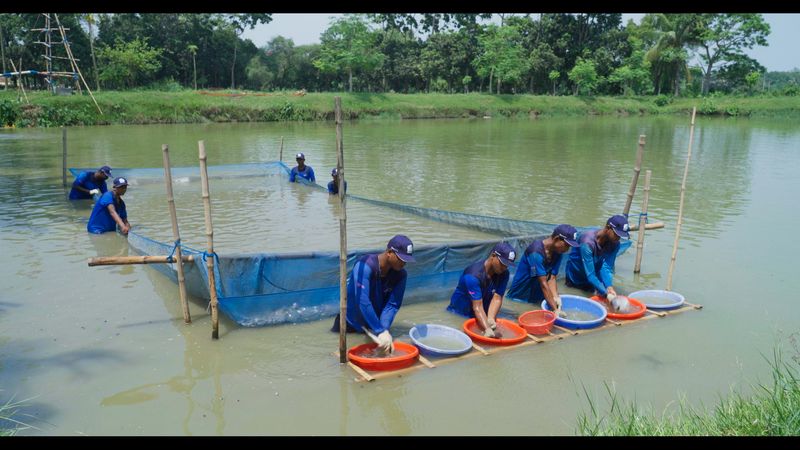
Building a solutions ecosystem for farmers
In addition to hatcheries, we provide farmers with multi-faceted support to raise fish. Skilled fisheries graduates, technicians, and support officers provide technical training, after-sales service, and disease management advice. This creates jobs while ensuring farmers have access to the information and inputs, such as high quality fish feed, that they need to run their farms.
Driving food security and climate resilience
At our core, we contribute to national food and nutrition security by making safe, high-quality fish more widely available. Our sustainable aquaculture practices refrain from antibiotics or harmful chemicals, supporting both human health and environmental well-being. By introducing climate-resilient aquaculture methods and promoting biosecurity, we are helping farmers adapt to temperature changes, water salinity shifts, and other challenges posed by climate change.
Ultimately, our work demonstrates how aquaculture can serve as both an economic driver for rural communities and a critical pillar for Bangladesh’s food security and resilience.
Our Impact
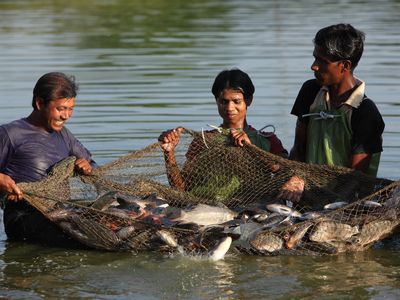
160 million
tilapia fry produced every year
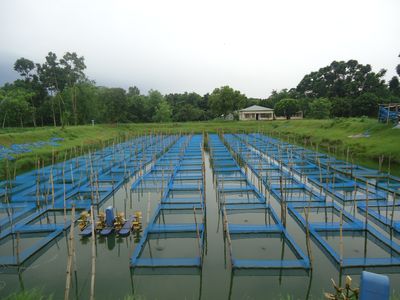
12,000kg
annual carp and catfish spawn production
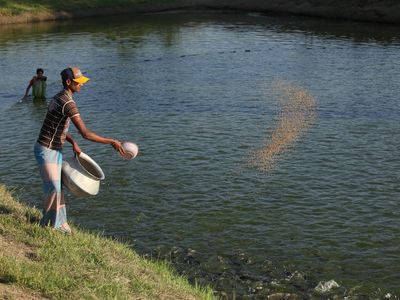
10 million
catfish fingerlings of species like pabda, gulsha, shing and magur
OUR HISTORY
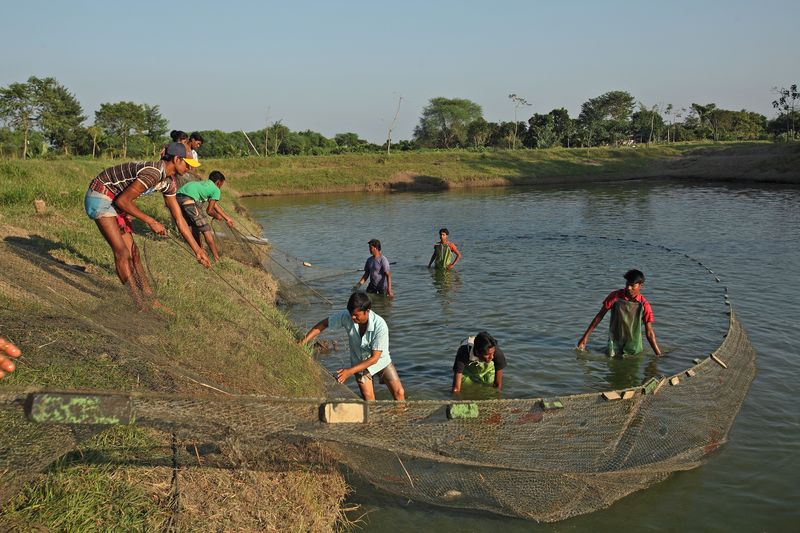
Pioneering sustainable aquaculture in Bangladesh
BRAC Fisheries began its journey in 1972, when BRAC first supported fish farmers in Sylhet with boats and nets to help restore rural livelihoods. Recognizing the potential of aquaculture to transform communities, BRAC Fisheries Enterprise was officially established in 1976, introducing farmer training in fish culture and small household hatcheries to meet the growing demand for fingerlings.
Early beginnings – supporting fish farmers since 1972
What started with simple net and boat distribution soon evolved into structured aquaculture support. By empowering farmers with accessible training and introducing small-scale hatcheries, BRAC Fisheries built an early model that linked improved fish production with stronger rural incomes.
Scaling impact – Carp, Prawn, and Tilapia hatcheries
As demand increased, BRAC Fisheries scaled responsibly. Carp and prawn hatcheries were established in 1986 to provide quality fingerlings at scale. In 2005, in partnership with the WorldFish Center, Malaysia and the Bangladesh Fisheries Research Institute, Mymensingh, BRAC introduced improved tilapia strains, ensuring high-quality fingerlings through strict breeding protocols. Additional generations of broodstock were later introduced from Malaysia (2014) and Thailand (2021) to maintain genetic strength and sustainability.
Innovation in aquaculture – global expertise, local solutions
By combining global collaborations with local expertise, BRAC Fisheries positioned itself as a leader in sustainable aquaculture in Bangladesh. The social enterprise continues to introduce innovations that help farmers adapt to changing demands, climate shocks, and new opportunities in the fisheries value chain.
Nationwide reach – delivering fingerlings and farmer support
Today, BRAC Fisheries operates hatcheries across ten districts—Sreemangal, Noakhali, Magura, Pabna, Sherpur-Bogra, Barisal, Dumuria, Dinajpur, Muktagacha-Mymensingh and Cox’s Bazar.
Each year, BRAC Fisheries delivers:
- 160 million tilapia fry
- 12,000 kg of carp and catfish spawn
- 10 million native catfish fingerlings (pabda, gulsha, shing, magur)
- 2 million prawn larvae
This scale is supported by a team spread across Bangladesh. The team includes fisheries graduates, technicians, skilled workers, and 32 marketing and technical officers, ensuring farmers receive not just inputs, but high-quality advisory support.
Leadership in Bangladesh’s fisheries sector
With around 50 years of experience, BRAC Fisheries is recognised as a pioneer of aquaculture in Bangladesh. Today, monosex tilapia—a fast-growing, profitable fish species—has achieved mass acceptance across farming communities and ranks as the second most popular cultured fish globally. In Bangladesh alone, the annual demand is nearly 4 billion fingerlings, and BRAC is playing a critical role in meeting that demand responsibly.
By combining history, innovation, and farmer-focused solutions, BRAC Fisheries continues to strengthen rural livelihoods, ensure food security, and advance sustainable aquaculture across Bangladesh.
“Only by putting people living in poverty in charge of their own lives will we remove poverty and deprivation from the face of the earth.””
Sir Fazle Hasan Abed
Founder, BRAC
BRAC Fisheries commercial
Media Gallery
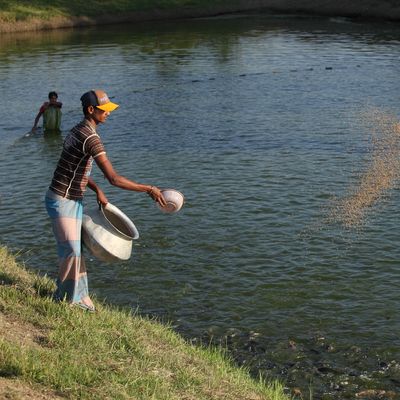
LEARN MORE
Learn more about BRAC Fisheries by visiting their website at https://bracfisheries.net/, or following their work on Facebook (https://www.facebook.com/BRAC.Fisheries)
